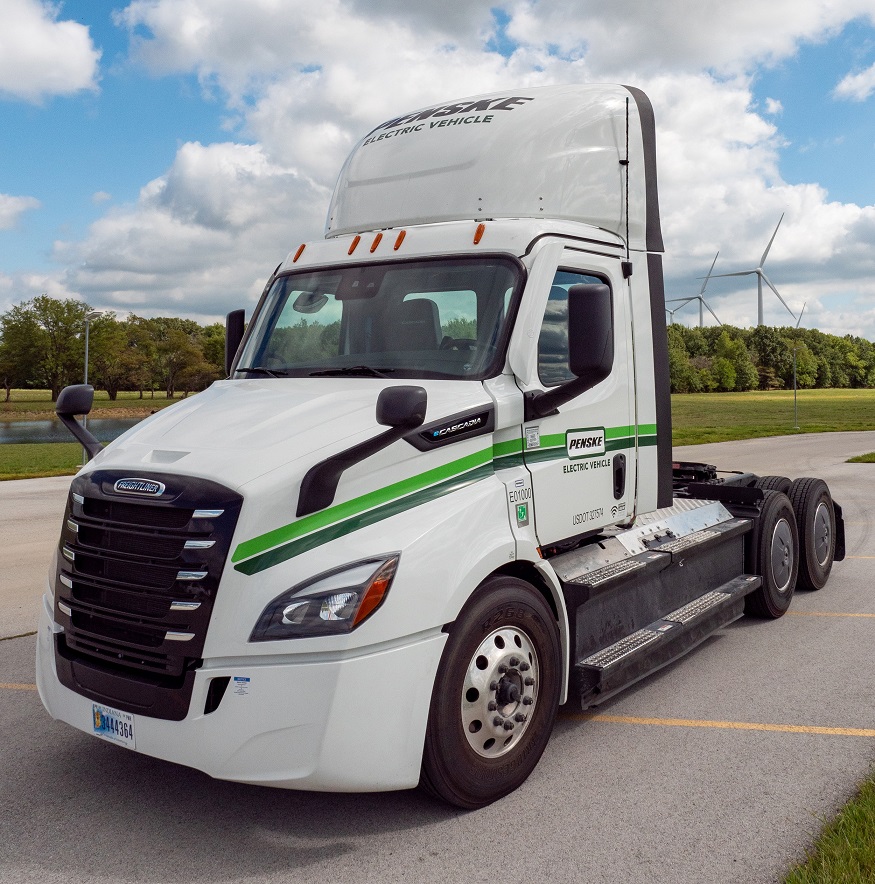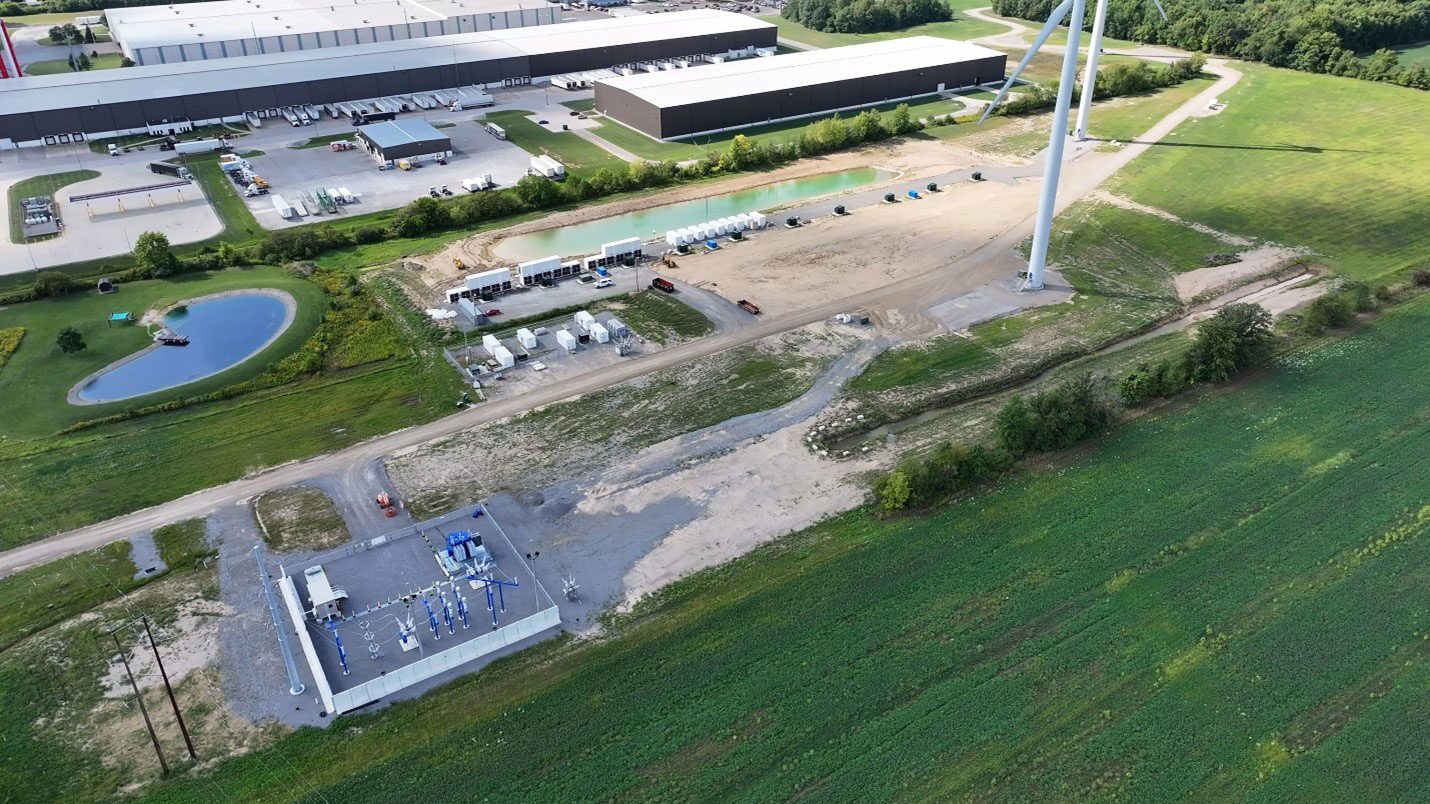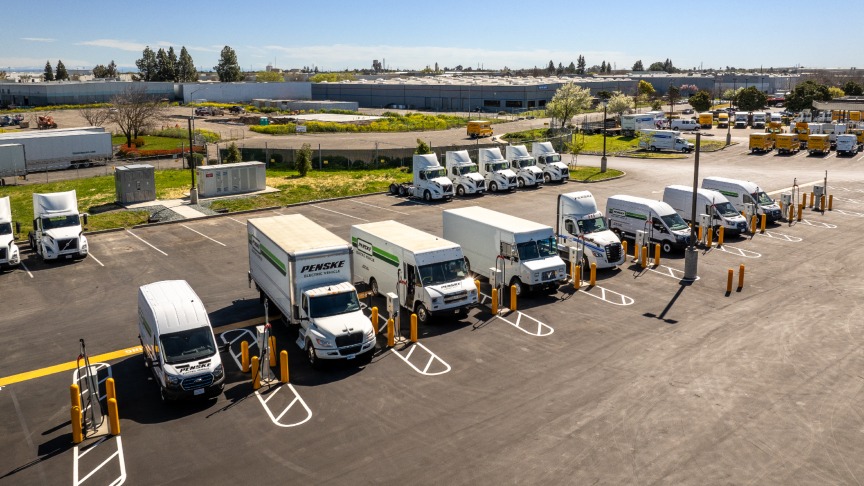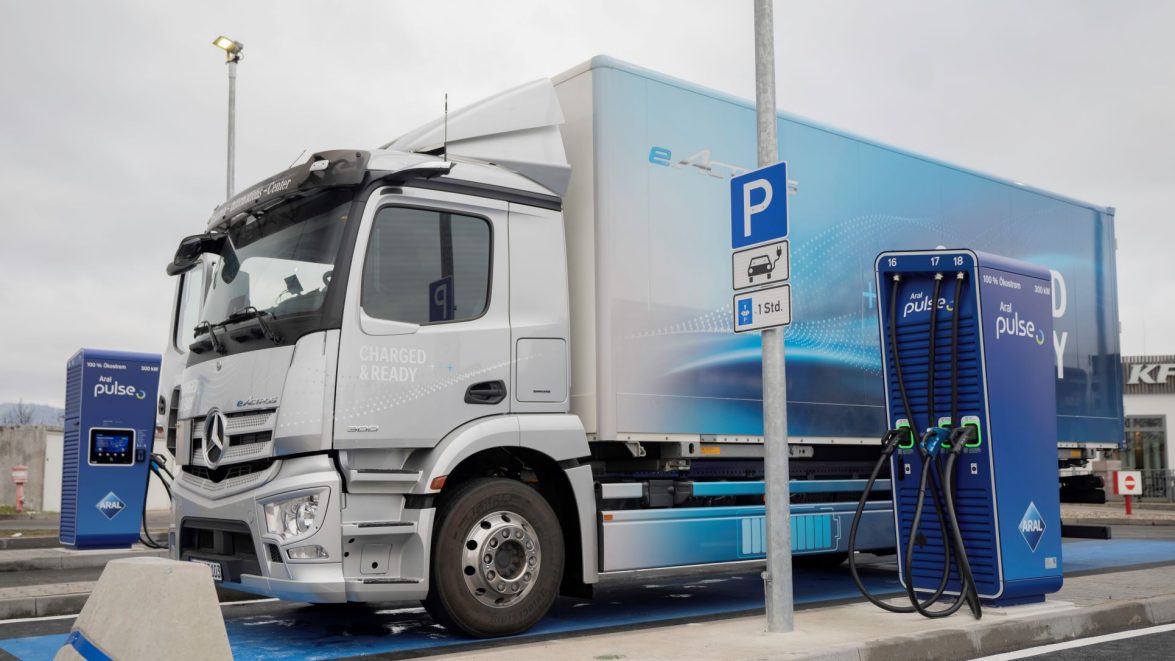
Over recent weeks, the two companies have been testing an electric shuttle-truck and an electric semi-truck. These tests are being used to gather crucial insights into how different electric trucks compare with diesel counterparts in performance and efficiency in a range of logistics roles.
One Energy supported the testing process through the installation of essential charging infrastructure and equipment, and it is providing the power required for the tests. The vehicles currently under trial include an Orange EV e-Triever heavy-duty yard truck, designed for short-distance yard service, and a Freightliner eCascadia, designed for medium range service. Access to the trucks was made available with the support of Penske.
Both models are being charged on One Energy’s corporate campus in Findlay, Ohio. The Orange EV e-Triever operates locally between Ohio Logistics’ distribution centres in Findlay and is being charged using a specialised 22KW charger that is exclusive to its model. In contrast, the eCascadia is being charged with an ABB Terra 180KW charger and has been operating on local and regional routes, traveling as far as 100 miles to destinations like Columbus, OH.
To encourage broader trials of electric semis, One Energy is building a permanent semi charging station that will be fitted with multiple chargers, allowing for the testing of a wide range of electric truck models. This initiative will ensure that Ohio Logistics and other regional firms will be able to evaluate electric semis without the usual up-front and ongoing power challenges. Ohio Logistics plans to explore additional emerging electric fleet technologies as they consider the integration of electric trucks into its operations.
“Through these trials, our understanding of electric truck operations has expanded considerably,” said Chuck Bills, CEO, Ohio Logistics. “We are dedicated to ensuring our clientele is informed about the myriad of opportunities electric semis present. Currently, our focus is on learning and preparing for the trucking industry's imminent transition to a more sustainable future."












